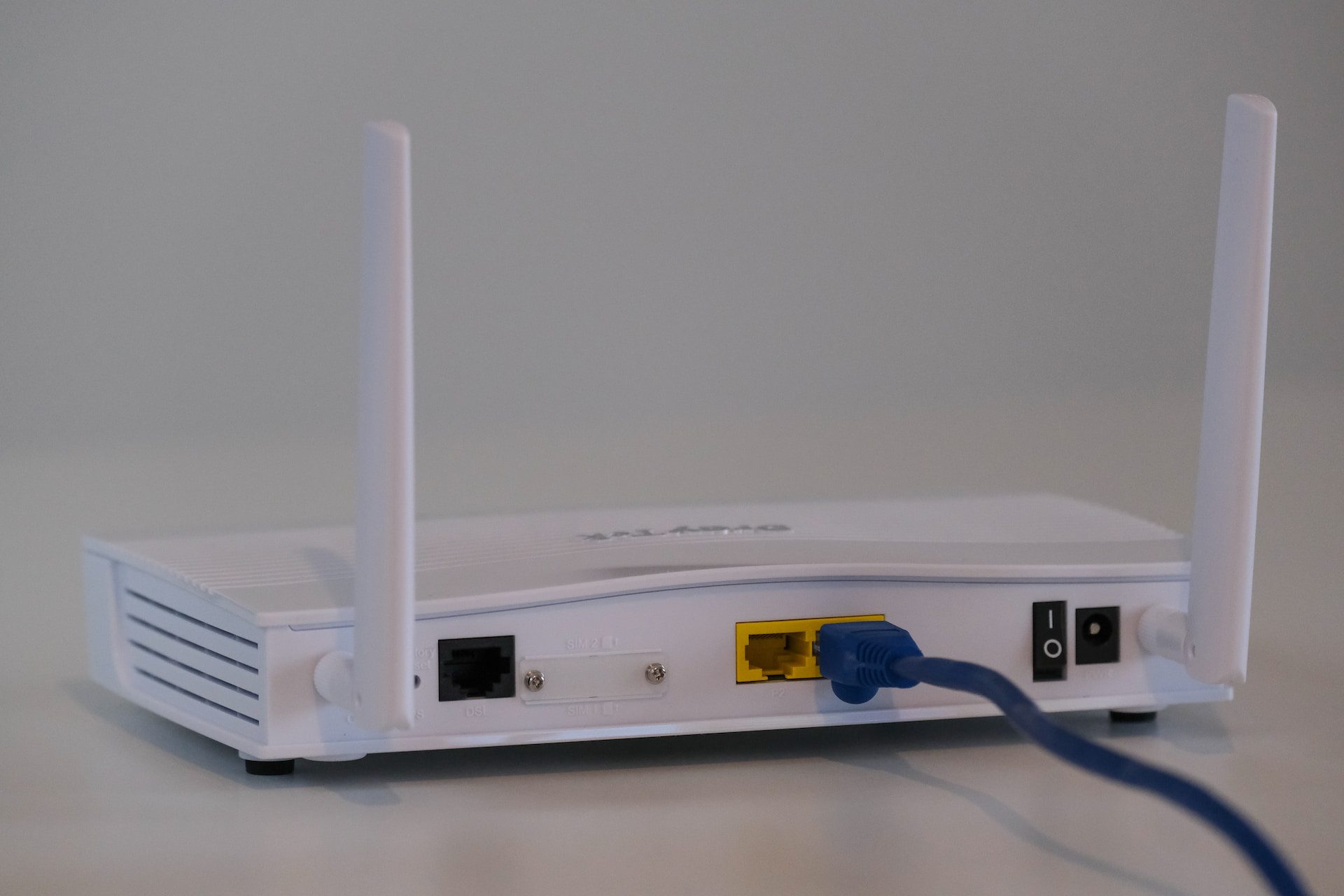Business broadband has become an essential tool for remote work. With more and more companies adopting a remote work policy, having a reliable and fast internet connection has become critical. Remote work relies heavily on technology, and a slow or unreliable internet connection can cause significant disruptions to productivity and communication.
In today’s digital age, businesses need to be able to connect with their employees, customers, and suppliers seamlessly. The use of video conferencing, cloud-based applications, and file-sharing platforms has become commonplace. These tools require a fast and reliable internet connection to function correctly. Without a robust broadband connection, remote workers may experience difficulties in accessing critical files, communicating with colleagues, and collaborating on projects.
The Rise of Remote Work
Remote work has been on the rise in recent years, with more and more companies embracing the benefits of a flexible workforce. The COVID-19 pandemic has accelerated this trend, with many businesses forced to adopt remote working practices to comply with social distancing guidelines.
According to a 2023 survey, 16% of companies are now operating fully remote, post-pandemic. This shift has been driven by several factors, including increased productivity, reduced overhead costs, and improved work-life balance for employees.
Technology has played a crucial role in enabling remote work, with high-speed internet connections being a key component. Business broadband provides the speed and reliability needed for employees to work from home effectively, without experiencing slow or dropped connections.
As well as enabling remote work, business broadband also provides a range of other benefits, including improved collaboration, increased data security, and access to cloud-based tools and services. As remote work becomes more prevalent, businesses that fail to invest in reliable broadband connections risk falling behind their competitors.
Why Business Broadband is Essential for Remote Work
Reliability
When it comes to remote work, having a reliable internet connection is key. Business broadband provides a more stable and consistent connection compared to residential broadband. This means fewer interruptions and less downtime. With business broadband, we can confidently participate in video conferences, upload and download large files, and access cloud-based applications without worrying about the connection dropping.
Speed
Remote work often requires us to transfer large files, participate in video conferences, and access cloud-based applications. Business broadband offers faster download and upload speeds compared to residential broadband. This means we can complete tasks more efficiently and with less frustration. Faster internet speeds also lead to increased productivity and better collaboration with colleagues.
Security
When working remotely, security is a top concern. Business broadband provides enhanced security features such as firewalls, VPNs, and other security protocols. This protects our sensitive data and ensures that our online activity is secure. With business broadband, we can work with peace of mind knowing that our data is safe and secure.
Scalability
As businesses grow and expand, their broadband needs may change. Business broadband offers scalability, allowing us to easily upgrade or downgrade our internet speeds as needed. This means we can adjust our internet plan to meet our changing needs without having to switch providers or deal with downtime.
Business broadband is essential for remote work. It provides reliability, speed, security, and scalability, all of which are necessary for a productive and secure remote work environment.
Choosing the Right Business Broadband for Remote Work
When it comes to remote work, having a reliable and fast internet connection is crucial. But with so many business broadband providers out there, how do we choose the right one? In this section, we’ll discuss some factors to consider when selecting a business broadband provider for remote work.
Assessing Your Business Needs
Before choosing a business broadband provider, it’s important to assess our business needs. Consider the number of employees who will be working remotely and the type of work they will be doing. Will they need to upload and download large files? Will they be video conferencing frequently? These factors will impact the speed and bandwidth requirements for our business broadband.
Comparing Providers
Once we have assessed our business needs, we can start comparing providers. We should look for providers that offer business-specific packages and have experience working with remote teams. We should also consider the following:
- Speed: We should look for providers that offer fast and reliable speeds that meet our business needs.
- Bandwidth: We should consider the amount of data we will be using and choose a provider that offers enough bandwidth to support our remote work.
- Customer Support: We should look for providers that offer 24/7 customer support and have a good reputation for resolving issues quickly.
Considering Future Growth
As our business grows, our broadband needs may change. When selecting a provider, we should consider our future needs and choose a provider that can scale with us. We should look for providers that offer flexible packages and can easily upgrade our service as needed.
When choosing a business broadband provider for remote work, we should assess our business needs, compare providers based on speed, bandwidth, and customer support, and consider our future growth. By taking these factors into account, we can select a provider that meets our current and future needs.
Impact of Poor Broadband on Remote Work
Productivity Loss
Poor broadband can lead to significant productivity loss for remote workers. Slow internet speeds can cause delays in accessing online tools and resources, which can result in missed deadlines and decreased efficiency. Plus, slow internet speeds can cause frustration and demotivation, leading to decreased productivity levels.
Communication Breakdown
Effective communication is crucial for remote work, and poor broadband can lead to communication breakdowns. Video calls can be disrupted or dropped due to poor internet connectivity, leading to missed meetings and lost opportunities. Poor internet connectivity can also lead to delays in responding to emails and messages, causing miscommunication and misunderstandings.
Potential Security Risks
Poor broadband can also pose potential security risks for remote workers. Slow internet speeds can make it more difficult to download security updates and patches, leaving devices vulnerable to security threats. Poor internet connectivity can also make it more difficult to access secure networks and systems, potentially exposing sensitive information to cybercriminals.
It is clear that business broadband is critical for remote work. Without reliable and fast internet connectivity, remote workers may experience significant productivity loss, communication breakdowns, and potential security risks.
Frequently Asked Questions
Reliable broadband ensures that remote workers can access the internet and necessary applications without interruption. This means that they can complete tasks more efficiently and effectively, leading to increased productivity. With a stable internet connection, remote workers can attend video conferences, share files and collaborate with colleagues seamlessly.
Business broadband is designed to provide reliable and fast internet connectivity for businesses. It offers a range of benefits for remote workers, including faster upload and download speeds, increased bandwidth, and better security. Also, business broadband plans typically come with dedicated customer support, ensuring that any issues are resolved quickly and efficiently.
Consumer-grade internet connections may not be sufficient for remote work, as they are often shared with multiple users and can experience slow speeds during peak usage times. This can lead to interruptions and delays, impacting productivity. Business broadband, on the other hand, provides dedicated and reliable connectivity, ensuring that remote workers can work efficiently without interruption.
Businesses should take appropriate security measures to protect their data and networks when using remote work broadband. This includes using a virtual private network (VPN) to encrypt data and protect against cyber threats. Businesses should also ensure that all remote workers are trained on cybersecurity best practices and have access to the necessary tools and resources to protect against potential threats.
Remote work broadband enables remote workers to collaborate and communicate with colleagues seamlessly. With reliable and fast internet connectivity, remote workers can attend video conferences, share files and collaborate on projects in real-time. This improves communication and collaboration, leading to increased productivity and better outcomes.
Not using business broadband for remote work can lead to unreliable internet connectivity, slow speeds, and security risks. This can impact productivity and put sensitive business data at risk. Also, consumer-grade internet connections may not come with the necessary customer support, leaving remote workers stranded if they encounter any issues. Using business broadband for remote work ensures that remote workers can work efficiently and securely, without interruption.





